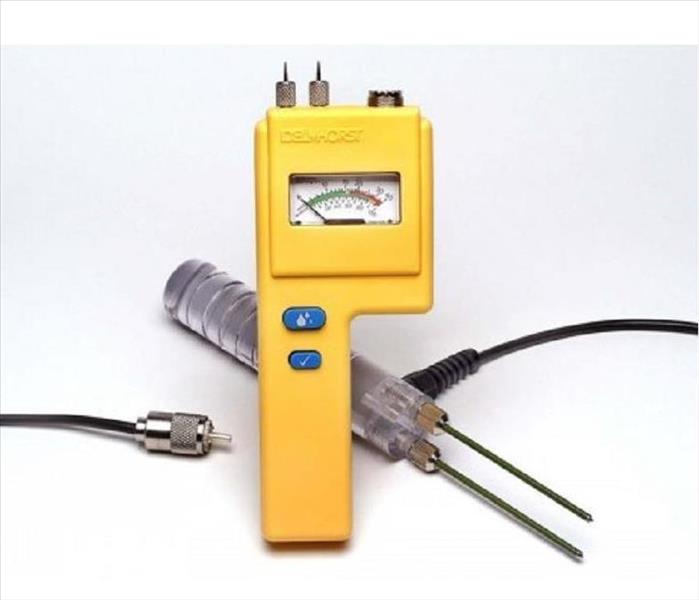Moisture Meters
6/8/2021 (Permalink)
Many times when a customer experiences water damage it can be hard to tell how bad the damage is just by looking around at the property. There can be underlying damage that is not visible to the eyes and this is where moisture meters come in to play. A restoration moisture meter or sensor measures the amount of moisture in an environment and in certain materials. Drywall, flooring and other structural components can be measured to assess the damage they may have incurred as well. These meters are very useful to put a number on the level of damage a property may have incurred.
There are a few different types of meters that all have a different pros and cons. Some jobs will only require the use of one but others will require more.
- Non-Penetrating Meters: These are one of the easiest meters to use and are a popular choice because they pose no risk of causing any damage to the flooring or structure. These have two flat sensors usually located at the bottom of the device and compare the amount of moisture located between them. They are best for quickly comparing levels between affected and unaffected areas.
- Penetrating Meters: These meters have a series of prongs that will penetrate the surface of a structure to take the moisture reading. These readings are much more accurate and are great for finding any trapped moisture on a site.
- Hydrosensors: These meters are a type of penetrating meters that are great for seeing how far moisture has traveled from the surface of the structure. These work best for carpet or carpet padding but do not work with drywall.
- Thermo-Hygrometers: mage restoration projects as they give you a good understanding of how big or small the job will be. Also it gives you readings to bring back to the customer and discuss the work that will need to be done in more detail.
- Thermo-hygrometers measure temperature and relative humidity, which both will affect how drying equipment will function. These essentially test whether or not an environment can be efficiently dried with the tools that are at the teams disposal. The measurements these put out are helpful in determining if your dehumidifier is working properly.
These tools are very essential in water damage restoration and require training and knowledge to understand how they each work to reach drying goals in materials such as wood and drywall. Call us at 904-861-8870 if you think you need a moisture test.


 24/7 Emergency Service
24/7 Emergency Service
